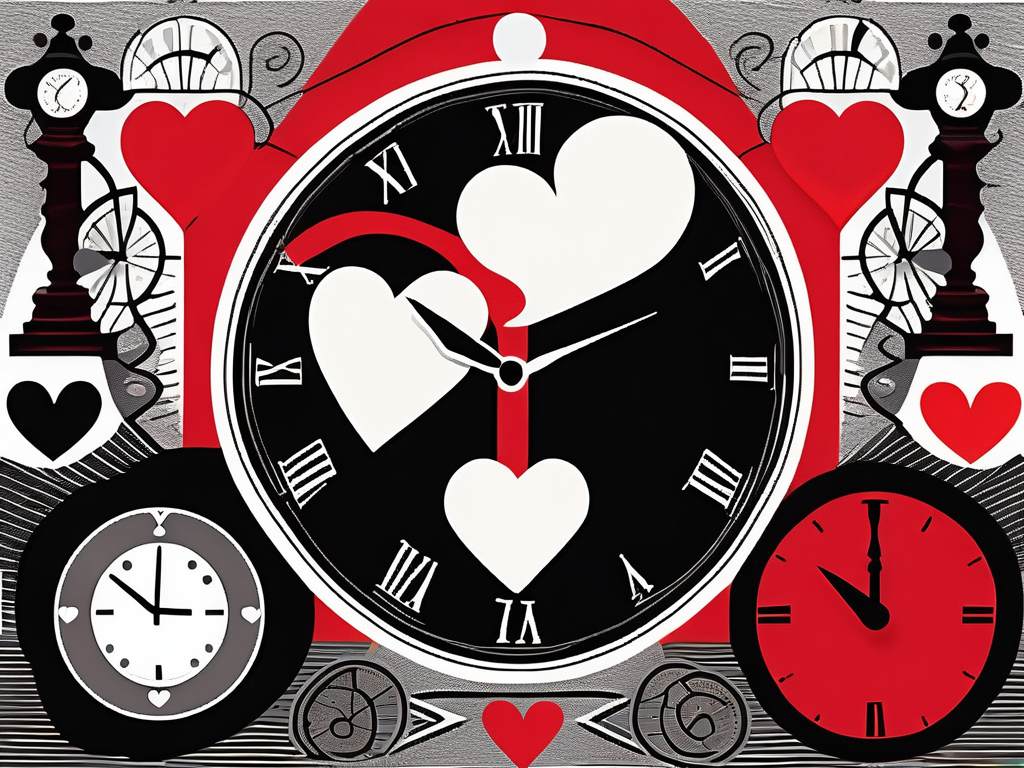
Infidelity is a complex and multifaceted issue that has been studied for many years. A frequent question that most people have is, “Who cheats more, men or women?”
Understanding who cheats more—men or women—requires a deep dive into various factors, including emotional, biological, and technological influences.
To know who cheats more, we need to answer:
In this article, we will explore the intricacies of cheating in modern relationships, unpack the gender divide, and analyze the impact of age and technology.
Understanding Infidelity: A Brief Overview
Infidelity can take many forms, reflecting the diverse nature of human relationships.
While the traditional view often painted cheating as a purely physical act, the modern perspective encompasses emotional affairs as well. This broader definition allows us to grasp the underlying motivations more effectively.
Defining Cheating in Modern Relationships
Cheating is no longer confined to a singular definition. It can include:
- Physical affairs, where one partner engages in sexual activities with someone outside the relationship.
- Emotional infidelity, where deep emotional connections are formed with someone other than one’s partner.
- Cyber infidelity, which involves online interactions that cross boundaries, like sexting or engaging in romantic chat rooms.
Understanding these nuances is key to grasping the complexity of infidelity today. Moreover, the rise of social media and dating apps has transformed the landscape of relationships, making it easier for individuals to connect outside their committed partnerships. This accessibility can blur the lines of fidelity, leading to situations where partners may not even realize they are crossing boundaries until it’s too late.
The Psychological Implications of Infidelity
Cheating can have profound psychological effects, not just on the betrayed partner but also on the one who cheats. Feelings of guilt, shame, and anxiety often plague the unfaithful. On the other hand, the betrayed partner may experience feelings of betrayal, diminished self-worth, and trust issues that can last a lifetime. The emotional fallout can ripple through various aspects of life, affecting friendships, family dynamics, and even professional relationships.
Additionally, the context in which infidelity occurs can shape its psychological impact. For instance, if a partner cheats during a period of significant stress or change, it may be perceived differently than if it occurs in a stable environment. This context can lead to varying levels of forgiveness or resentment, complicating the healing process for both parties involved. Understanding these psychological dimensions is crucial for anyone navigating the aftermath of infidelity, as it highlights the need for open communication and possibly professional support to mend the emotional wounds inflicted by such betrayals.
The Gender Divide: Men and Cheating
When it comes to infidelity, perceptions and realities can differ significantly between genders. Examining male cheating offers insights into biological and societal factors that contribute to the behavior.
Biological Factors Influencing Male Infidelity
Research suggests that biological impulses can drive men towards infidelity. Factors such as testosterone levels and evolutionary urges may play a role. From a biological perspective, men may be more inclined to seek multiple partners to enhance their reproductive success. This instinct can be traced back to evolutionary strategies where diversifying genetic material increased the chances of offspring survival. Furthermore, studies have shown that men with higher testosterone levels often exhibit more risk-taking behaviors, which can include seeking out new sexual partners. This biological predisposition, however, does not excuse the behavior, but rather provides a framework for understanding the complexities behind male infidelity.
Societal Expectations and Male Cheating
Society often places certain expectations on men regarding masculinity and sexual conquest. The idea that “men will be men” can lead to a culture that accepts, or even encourages, cheating as a rite of passage. This societal acceptance complicates the narrative around male infidelity and its normalization. In many cultures, men are celebrated for their sexual exploits, creating a paradox where infidelity can be seen as a badge of honor rather than a betrayal. This cultural lens can distort the understanding of loyalty and commitment, leading to a cycle where infidelity is not only tolerated but sometimes expected. Additionally, the portrayal of male infidelity in media and literature often glamorizes the act, further embedding the notion that such behavior is a natural part of being a man, thereby influencing younger generations to adopt similar attitudes towards relationships.
The Gender Divide: Women and Cheating
While male infidelity is often highlighted in discussions, it’s essential to shed light on the factors influencing women to cheat. The emotional landscape surrounding female infidelity is vastly different.

Emotional Factors Influencing Female Infidelity
Women often cite emotional dissatisfaction in their primary relationships as a driving force behind their infidelity. They are more likely to seek connections that fulfill emotional needs, which might be lacking in their current partnership. The feeling of being appreciated and valued can draw women towards others. Additionally, many women report that a lack of intimacy—both emotional and physical—can lead them to seek validation elsewhere. This quest for connection often stems from a deep-rooted desire for intimacy that transcends mere physical attraction, highlighting the complex interplay between emotional fulfillment and fidelity.
Changing Social Norms and Female Cheating
As societal norms evolve, so does the perception of female infidelity. Women’s liberation and increasing independence have altered their approach to relationships. The stigma associated with women cheating has diminished, allowing more freedom in exploring sexual and emotional relationships. This shift is also reflected in the rise of social media and dating apps, which have created platforms where women can connect with others outside their primary relationships. The modern landscape of dating has made it easier for women to engage in affairs, often without the same level of scrutiny that was once directed at them. Furthermore, as women become more empowered in their personal and professional lives, they may feel more entitled to pursue their desires, leading to a reevaluation of traditional relationship dynamics.
The Role of Age and Relationship Status in Cheating
Age and the nature of one’s relationship significantly influence infidelity rates. Different stages of life are often accompanied by evolving priorities and temptations.

Infidelity Trends in Different Age Groups
Statistics reveal that cheating behavior varies across age groups. Younger individuals may cheat out of curiosity or exploration. In contrast, older adults might cheat due to stagnation in long-term relationships. Certain age groups may feel a greater urgency to seek new experiences, pushing them towards infidelity. This phenomenon can be attributed to a variety of factors, including the desire for validation, the thrill of novelty, or even a mid-life crisis that prompts individuals to reassess their life choices. Furthermore, the digital age has provided unprecedented access to potential partners, making it easier for individuals of all ages to engage in extramarital affairs.
Cheating in Committed Relationships vs. Casual Dating
The motivations for cheating also differ between committed relationships and casual dating. In committed partnerships, stakes are generally higher. Cheating can lead to significant emotional and relational turmoil.
Conversely, in casual dating, individuals may feel less invested and therefore might cheat with fewer emotional consequences. This difference in commitment levels often influences how individuals rationalize their actions. For instance, someone in a casual relationship may view cheating as a natural part of dating, while those in serious relationships might grapple with guilt and betrayal, leading to deeper psychological impacts.
Additionally, the nature of communication within these relationships can play a crucial role; open dialogue about desires and boundaries may mitigate the likelihood of infidelity in committed partnerships, whereas casual daters might not engage in such discussions, leaving room for misunderstandings and misaligned expectations.
The Impact of Technology on Infidelity
In our digital age, technology has reshaped how relationships are formed and tested.
This has huge implications for infidelity.
Online Infidelity: A New Frontier
The internet has created an entirely new realm for infidelity.
Dating apps and social media allow individuals to connect in ways that were previously impossible. This accessibility increases opportunities for cheating, often without the information or emotional connection required in traditional affairs.
The anonymity provided by the internet can embolden individuals to act on impulses they might otherwise suppress, leading to a rise in casual encounters that lack the depth of genuine relationships.
Moreover, the ease of creating multiple online personas allows individuals to explore different facets of their identities, sometimes at the expense of their committed relationships.
The Role of Social Media in Modern Cheating
Social media platforms can blur the lines of fidelity. Engaging with past partners or flirting online can lead to emotional infidelity, complicating relationships further. The impulsivity fostered by social media can encourage behavior that may have remained suppressed in prior generations. Notifications and likes can create a sense of validation that some individuals seek outside their primary relationship, leading to a cycle of emotional dependence on virtual interactions. Additionally, the constant connectivity can lead to misunderstandings and jealousy, as partners may misinterpret innocuous messages or interactions, further straining their trust and communication.
Furthermore, the phenomenon of “social media stalking” has emerged, where individuals monitor their partner’s online interactions, often leading to feelings of insecurity and suspicion. This behavior can create a toxic environment where trust is eroded, and partners may feel compelled to hide their online activities, leading to a secretive dynamic that can be detrimental to the relationship. As technology continues to evolve, the challenge of navigating fidelity in the digital landscape becomes increasingly complex, requiring couples to establish clear boundaries and open lines of communication to foster trust and understanding.
So Who Cheats More, Men or Women?
The question of whether men or women cheat more is far from simple.
Each gender has its unique motivations shaped by biological, emotional, and societal factors. Understanding these differences is crucial in addressing infidelity in relationships.

Summarizing the Findings
Both men and women engage in infidelity, but the reasons vary widely. Men may succumb to biological impulses and societal expectations, while women often seek emotional fulfillment. Age and relationship status also play significant roles, with technology further complicating the landscape.
For instance, younger individuals might be more inclined to experiment with relationships due to a desire for exploration and self-discovery. In comparison, older individuals may cheat due to feelings of dissatisfaction or unmet needs in long-term partnerships.
Furthermore, the rise of social media and dating apps has created new avenues for temptation, making it easier for individuals to connect outside their primary relationships.
Implications for Future Research on Infidelity
Future research into infidelity should consider the evolving dynamics of gender roles, emotional needs, and technology’s impact. As societal norms shift, understanding the motivations behind cheating can lead to healthier relationship dynamics and better support systems for individuals coping with infidelity. Additionally, examining the psychological consequences of infidelity on both partners can provide deeper insights into the healing process. Exploring how different cultures perceive and respond to infidelity could also yield valuable information, as attitudes toward cheating can vary significantly across societies. This multifaceted approach will help to create a more comprehensive understanding of infidelity and its implications for modern relationships.
Discover the Truth with Cheaterbuster
If the complexities of infidelity have you questioning the fidelity of your relationship, Cheaterbuster is here to help.
As the definitive tool for uncovering hidden Tinder profiles, Cheaterbuster empowers you to confirm your suspicions. With our advanced facial recognition technology and direct access to Tinder’s database, you can quickly find out if your partner is active on the app, see their profile details, and get accurate results (without needing a Tinder account).
Don’t let doubt consume you—take control and Find anyone on Tinder today for just $17.99. Your peace of mind is worth it.






